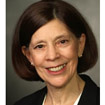Commentary on Ephesians 5:8-14
In the midst of a group of complex lessons (not in sequence) from Romans, this pericope from Ephesians suddenly appears.
It accompanies the dramatic Johannine story of the man healed of blindness (John 9:1-41). The first reading (I Samuel 16:1-13) tells the story of God’s choice of David as a young boy to be king of Israel. This lesson might not be the obvious choice for preaching, but it amply rewards the one who takes it up.
First and foremost, this passage is about the present lives to the people to whom it was addressed. Loaded with verbs in the imperative moods, verses 10 and 11 begin with commands to baptized believers. “Try to find out what is pleasing to the Lord,” on the one hand and “Take no part in the unfruitful works of darkness,” on the other are the two identical callings of Christians. For those concerned that kind of language does not proclaim the gospel, rejoice. The first verse, the rubric for engaging this particular passage, declares clearly and firmly that once the hearers were children of darkness, but now in the Lord (note: not by their own power), the hearers are “children of light.” This entire passage is about what that means for daily life. Perhaps, Lent is a good time to consider that question, phrased cogently in Luke’s narrative, “How then shall we live?”
“Live,” says Ephesians, “as children of light.” (v.8)
The letter to the Ephesians seems to have been a baptismal sermon circulated in letter form in Asia Minor. It is not clear if originally it was designated as for persons living in Ephesus. If it were, however, all the better for us. For Ephesus was a large city of diverse populations, home to numerous shrines and deities, and especially to the great temple of Artemis. In this sophisticated, pluralistic city, Christians would have been a distinct minority. Perhaps many of those among and for whom we preach these days feel the same way in this diverse, “sophisticated” world. Yet, the way of living does not call for fear, crouching in safe places, keeping things quiet. The way that children of light are called to live involves being awake.
The lectionary cuts off the reading before Ephesians concrete examples come up, but preachers should have them in mind. Verses 15-20 have some very clear suggestions, as do the better known verses following 5:21. Being awake involves “understanding the will of the Lord,” being filled with the Spirit (rather than wine), “singing and making melody to the Lord in your hearts,” and “giving thanks to God at all times.” These suggestions include activities, but even more they delineate a way of life, a transformation of the person and the community. Refraining from debauchery is simply a precondition of an ability to focus on God’s gifts with thanksgiving and energy.
These verses from the fifth chapter of Ephesians highlight being children of light, one among a family of adopted kin, living in community. In Ephesians 1:17-18, the author prays that all the community might receive a “spirit of wisdom and revelation” in order to recognize “what is the hope to which [God] has called you.” This community is made up of persons who have been totally renewed as the body of Christ. They have been given to one another as “citizens with the saints” (2:19) and “members of the household of God.” (2:20). Their reality has been re-created, as has been the reality of all the baptized, now as much as when this letter was first written.
In exhortations to live as children of the light, these children are expected to care for one another as family. Not just any family at that. The body of Christians and especially the church, is called to “speak the truth in love” as a means to grow and as a goal for growing (4:15). Only in this way do we mature into the body of Christ we are enabled to be. Therefore, we pay attention, listen to one another, seek one another’s well-being–even those who do not “deserve” this kind of attention.
This life style is not a mystery. Its been described in all kinds of literature from poetry to self-help to the Bible over and over again. We know what it looks like, even if only in glimpses. I wonder why it is so hard to trust that such life together is a gift from God rather than a demand. For truly, when we are told in Ephesians (4:7) that “each of us was given grace according to the measure of Christ’s gift,” we know that the grace is for something, for salvation, for being knit together, for growth in truth-telling with love, for living awake, children of light, for gratitude to God.
Thanks be to God for this vision, this home for all our yearnings, and the gift of grace to know it in Christ Jesus.

March 2, 2008